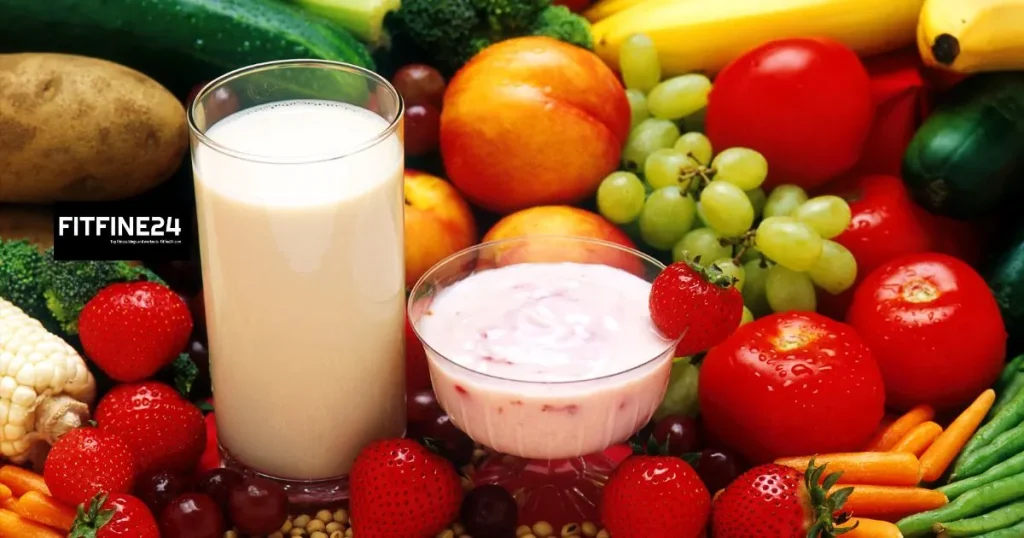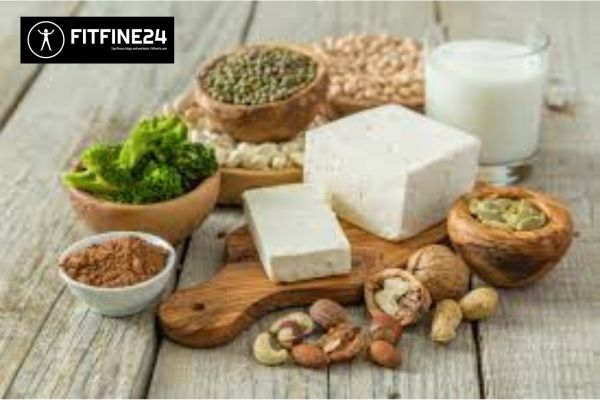Introduction
As well as the benefits above, these days many more people are looking for balanced plant-based eating plans that can be a little flexible if you want to eat eggs or dairy but sharply reduce meat and all processed foods. A lacto-ovo vegetarian diet, for example, leaves out animal meats but contains dairy products such as milk, cheese,, or yogurt. In addition to being very healthy and whole foods-based, it is also an ethical diet, and planet-friendly. What we will learn in this article The lacto-vegetarian diet What are the benefits? Is it trending? How to eat meal ideas for living a lifestyle like that?

What is Lacto-vegetarian diet?
Lacto-vegetarian diet It is a type of vegetarianism in which plant-based foods, and also dairy products but not meat, fish, or eggs are consumed. The term “lacto vegetarian” means including dairy because vegetarianism does not include any animal product like a vegan. The lactovegetarian diet at a glance
Permitted Food: All fruits, vegetables, grains (including rice), legumes (like beans and peas), nuts, and seeds; dairy products, including milk of all kinds, and cheese in general.
Banned food: Animal proteins like meat, poultry fish, and eggs.
The popularity of the Lacto-Vegetarian Diet At fitfine24
Because the lacto vegetarian diet has a synergy of all these things, I know it’s why this particular style of eating is becoming more mainstream. It speaks to health-conscious people who have made the decision to reduce meat but not sacrifice dairy. It also corresponds with a tradition and religion that is followed by many people across the globe, therefore making it an easily embraced dietary option. General knowledge has expanded about the ecological disadvantages of meat production so for those seeking to combine dairy goodness with sustainability, living a lacto-vegetarian lifestyle is an excellent compromise.

Ust of Lacto-vegetarian Diet
Cardiac Impact: A diet high in fruits, vegetables, and whole grains can help reduce blood pressure, helping to lower the risk of heart disease, whereas low-fat dairy products are a source of calcium and protein, which have less saturated fat syndrome.
Digestive Health: Due to their focus on fruits, vegetables, and whole grains, a lacto-vegetarian diet can support better digestion and the good bacteria in your gut.
Weight Maintenance: The emphasis on plant foods high in nutritional value with the addition of dairy protein can make it simpler to maintain weight.
Dairy-based foods in a lactovegetarian diet are rich sources of calcium, which is necessary for keeping your bones strong and healthy as well as for preventing osteoporosis.
Getting On A Lacto-Vegetarian Diet
Lacto-vegetarian diet is easy to switch over and can be done gradually. Let’s take a look at the steps to get you started.
Substitute plant proteins for meat: Replace the red (beef, veal, and pork) with beans; otherwise, legumes; lentils; tofu; or tempeh.
Dairy products: Try adding milk, yogurt, and cheese to your daily meals for a good source of protein as well as calcium and vitamin B12.
Eat real, whole foods: You’ve outgrown the artificial neon-colored sugar-filled junk you probably grew up on, so focus on fresh fruits and veggies & get your grains from their WHOLE source (whole wheat or brown rice) as opposed to processed flours.
BALANCED MEALS: Your meals should include healthy fats, proteins (e.g.,dairy or legumes), and carbohydrates to keep your engines running all day.

5 Yummy Lacto-Vegetarian Foods
Meal ideas for a lactovegetarian diet
Breakfast: Fresh Greek yogurt with berries, honey, and a little granola.
Lunch: Palak panner gravy with brown rice and a bowl of cucumber salad.
Snack: Apple slices with almond butter or small bag of nuts.
Supper: Vegetable lasagna (zucchini, bell peppers, ricotta and mozzarella)
Nutritional Notions
The lacto-vegetarian diet is rich in various nutrients, but there are a few concerns that should be taken care of to ensure proper well-being.
Protein: Dairy products like milk, yogurt, & cheese would provide the protein along with legumes and nuts.
Vitamin B12 is mainly found in animal products, so consume fortified foods or take a vitamin B-12 supplement if you are vegan.
Iron: Opt for iron from plant sources, such as lentils and spinach or beans with a side of vitamin-c-rich food to help it be absorbed.
Sustainable Lacto-Vegetarian Lifestyle
Living a more sustainable lifestyle is the other silver lining when opting for a lacto-vegetariandiet. There are fewer emissions associated with plant-based foods compared to meat, meaning that by reducing the amount of meat in your diet you can lower food-related CO2 and resource demand. Additionally, a dairy farming operation has far fewer impacts on the environment when compared with large-scale meat production, which means this is an environmentally friendly diet to follow.

Conclusion
Lacto-vegetarianism may be a more manageable and beneficial way for vegetarians to choose a plant-based life but still include their favorite dairy products. Due to the balance, cardiovascular benefits, and sustainability, its appeal is obvious in why it has become so popular. If you are new to the vegetarian lifestyle or just looking for ways to feast on healthier foods, lactovegetarian meals can indeed take your taste buds and health along a delicious route.

